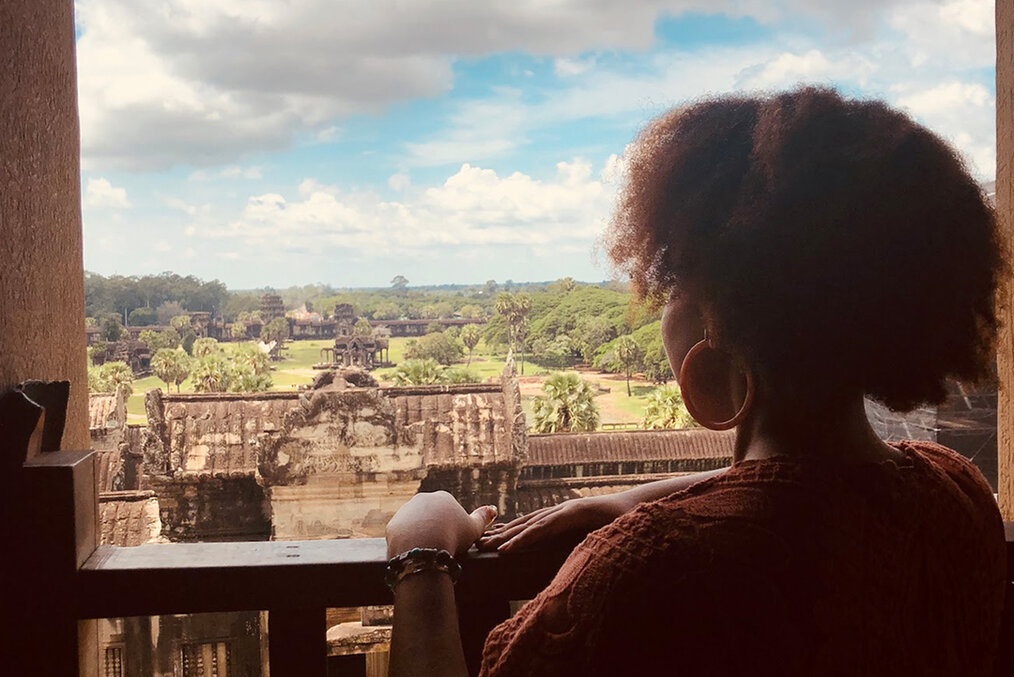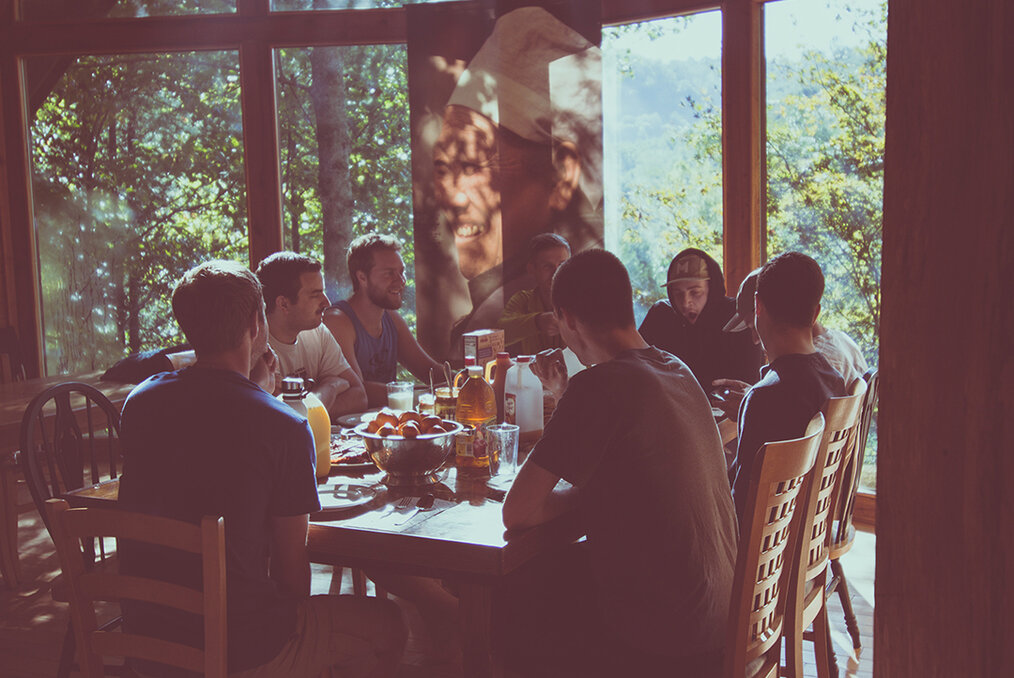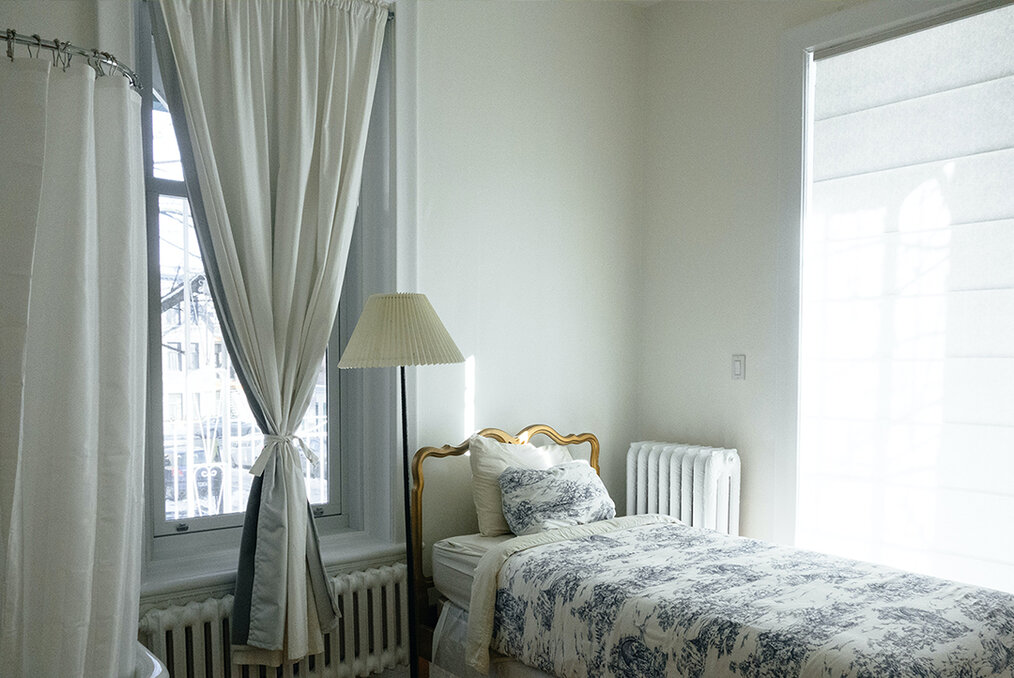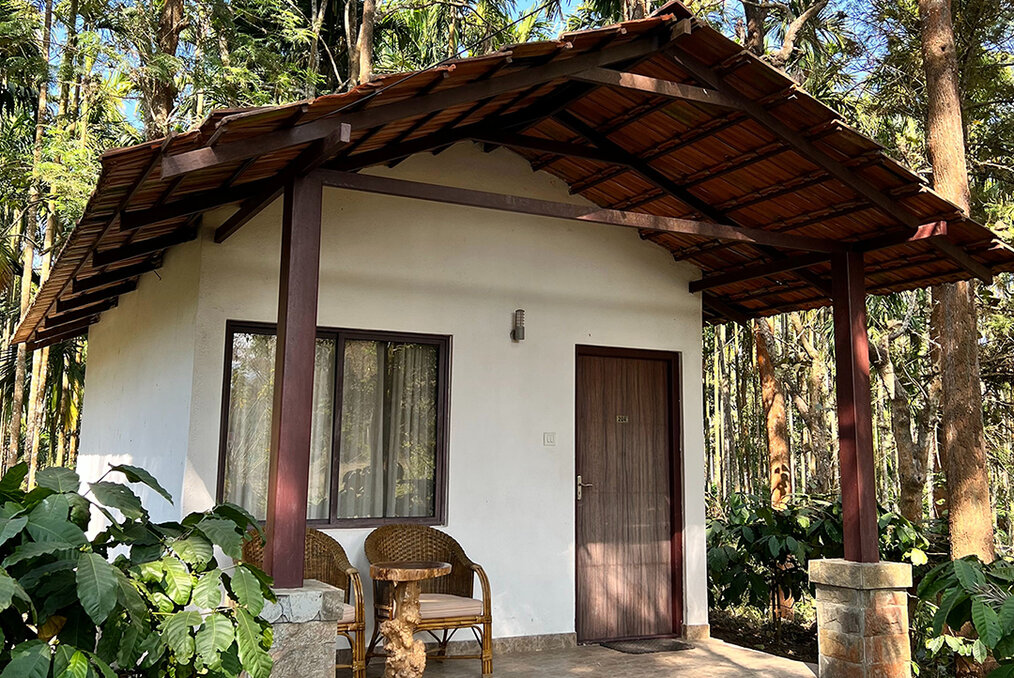What is it Like Living With a Host Family Abroad?
Learn what to expect from a homestay experience while traveling abroad, including real stories from program alum.
Key Takeaways 🔑
- Gain insight into what life in a homestay is like so you can set reasonable expectations such as eating with your host family, following their rules, and being involved in family activities.
- Learn about personal experiences of a homestay abroad by reading real reviews and feedback from program participants and their loved ones.
- Ask yourself the correct set of questions, suggested by industry professionals here at Go Overseas, to ensure a homestay is a good fit for you, including your need for privacy and willingness to immerse yourself in the language.

A quintessential component of an immersive experience abroad, whether you're studying or volunteering, is your living situation. While student accommodation, hostels, and traditional rental apartments are all good options, a truly unique and meaningful alternative is living with a host family, also known as a homestay. At first, it seems like the obvious choice: it's affordable, gives you an instant support system in the country, and can help your immersion into the local language and culture.
That said, the idea of moving into a family home full of strangers (who may not even speak your language) is intimidating. You may not be familiar with the cultural nuances your host family lives by and will need to sacrifice some freedom. Fortunately, most host families will be patient and understanding as long as you're putting in the effort to respect them. They will also likely help you adjust to living in a new country.
Here at Go Overseas, we strive to support meaningful experiences abroad. We're here to help you understand what it's like living with a host family abroad to ensure it is a good fit for you and your goals.
Note: This article is referencing a homestay through an official program provider or organization that thoroughly vets homes to ensure your safety while abroad. We do not advocate for travelers to accept homestays that have not undergone these safety measures. Learn more by reading our article on homestay safety.
What you should expect while living with a host family

Every homestay experience is just as different as the families who host. Whether you're living with a family with three young toddlers in Senegal or a single mom and her daughter in Spain, there are a few things you can expect from just about every homestay experience. While living with a host family, you should expect:
1. Your family may or may not have hosted other travelers before
There's always a good chance that your host family has had experience hosting before. If this is the case, your host family will have a better idea of what you'll need help with, what you're capable of accomplishing on your own, and likely have greater sensitivity to your cultural differences.
At the same time, there's always a chance you're the first, and that's a wonderful opportunity as well. Just try to be understanding and patient. Both you and your host family will learn a lot from living with each other!
2. Your host family should have been thoroughly evaluated and interviewed
Your program provider should have interviewed and evaluated your host family thoroughly to ensure they meet their standards and can provide a safe and comfortable living environment for you. To make sure you end up in the right family for you, ask your provider the following questions:
- How long has the family been hosting volunteers or students?
- What meals will they provide?
- Will the family adapt to any dietary restrictions you have?
- Will you be sharing a room with another person?
- Are you expected to provide your own food on the weekends?
- How old are the children, if any?
- How far away is the home from your school or volunteer site?
- Do they have internet access?
- What is transportation like around the community?
3. To eat the same food that the rest of the family is eating
If you have any special dietary restrictions, let your program provider know well before they assign you to a host family. This way, they can ask your host family if they are willing and capable of adapting to your dietary restrictions and ensure you're hosted with a family capable of accommodating you.
Even so, you may have to be flexible and patient (not every culture "gets" vegetarianism -- for example, in Senegal, "vegetarian" means you still eat fish).
If you have no restrictions, expect to eat what your host family is eating. It's just plain rude not to! (Hint: In cultures where they tend to feed guests a lot, there's usually a polite phrase or gesture to say, "great food, but I'm full" -- learn it!).
4. To be respectful of their house rules
Does your family wait up for you to get home before locking up? Do they feel uncomfortable with you bringing a friend home? Do they expect you to do the dishes or keep the bathroom a certain way? Ask about these rules and be respectful of them -- it's the least you can do to say thanks!
5. To learn the language much faster
Your host family is an excellent resource for practicing the local language and creating a total immersion environment. Families with small children are especially helpful since they're already used to coaching their kids through challenging pronunciations and explaining concepts simply.
6. To feel uncomfortable in certain situations
Living with a host family means getting very familiar with each other and spending time in each other's personal space. Add different cultural norms and perspectives on what personal space is (in some places, it's not a concept at all), and you're sure to have an awkward moment or two.
Despite all the awkward moments and cultural differences, expect to fall in love with your host family.
Little host brother barges in your room while you're getting dressed? Does your host mother hand wash your underwear? Does your host sister ask you about every detail of your love life? These things happen! Embrace the experience and find ways to learn from the awkwardness. This is also an opportunity to learn how to establish boundaries respectfully.
7. Your host family to include you on family events and holiday celebrations
You're part of the family, after all! If you're living with your host family during important holidays or celebrations, like weddings, birthdays, or funerals, expect to get an invitation. These may even become some of the most culturally immersive and meaningful experiences from your time abroad!
8. To get a second family that will be hard to leave
Despite all the awkward moments and cultural differences, expect to fall in love with your host family. Expect that when it comes time to leave, both of you will be adamantly making promises to stay in touch and see each other soon. They're your second family now! How lucky are you?
That said, if you don't click with everybody, that is okay, too. You will still have a long list of lessons and experiences from your time living with a family abroad.
What you should NOT expect while living with a host family

While a host family can become an essential part of your travel experience, there are a few things that you absolutely shouldn't expect from your host family. Do not expect:
- To be coddled
- To have the same amount of independence as you did at home
- To have a live-in maid
- For your family to use English for your sake
- To treat your house like a hotel
- To have your friends come and stay with you
Remember, these are strangers who are willing to open their homes and allow you to live with their family, potentially including their kids and pets. Show this family the utmost respect.
Stories from living with host families abroad

No two experiences living with a host family are the same -- and what better way to learn about personal experiences than by hearing stories from a few individuals who have had this experience? Here is feedback from various program alum, including quotes left on their reviews.
Natalie, Study Abraod in Sevilla, Spain alum
For Natalie, a college student who studied abroad in Sevilla, Spain for a semester, having a host family helped her “get to know the area better through a local perspective, feel comfortable in a foreign place, gain a better cultural understanding, and practice speaking the language on a regular basis.”
Having a stand-in family while far away from her own was a huge perk for Natalie, especially when she got sick and needed extra help.
The only drawback was a slight lack of independence, like having curfews and feeling obligated to eat massive amounts of food at meal times, but she says the benefits far outweighed this one factor.
The best thing about living with a host family, according to Natalie, is that her relationships “developed into those similar to a real family."
She looks forward to when she can return to Sevilla and visit them.
Mandi, language immersion program in Costa Rica alum
Mandi lived with a host mom and two sisters in San Jose, Costa Rica while taking a month-long language course in Costa Rica. Her reason for wanting to live with a host family was as a way to get extra Spanish practise outside of class.
Of her experience, she says, "I found it tough to interact with my new family -- my Spanish skills were still pretty low, and I'm a shy person."
Since her stay was only one month long, she didn’t have time to break out of her shell enough to feel entirely comfortable and improve her Spanish skills.
Even so, she loved living with my host family.
"I got delicious, authentic breakfast and dinner every day. I had my own room in a quiet neighborhood, with another American girl in the house and a few more down the street."
Despite the language barrier, Mandi says her host mom went out of her way to make sure she was comfortable.
In conclusion, Mandi states, "my only regret was that I didn’t get to stay longer and build my relationship with her!"
Michele, a loved one of a French immersion homestay program alum
Another advantage of a homestay is the peace of mind your family back home has, knowing you have a family looking after you and a safe place to stay.
For example, Michele, whose son is an Abbey Road High School French Immersion Homestay Program in Saint-Laurent-du-Var alum, talks about her experience having her high school-aged child travel abroad:
It was no small thing to send him off mid-pandemic as the youngest participant by far, and the only boy in this year's group. As it turned out, he had a wonderful time, was incredibly well looked after, and loved every minute of his time in St. Laurent du Var. The mix of activities and language immersion was fantastic and the homestay element really allowed him to feel what it is like to live in France.
Read the full review by visiting the Abbey Road French Immersion Homestay Program page
Dennis, volunteer in India alum
Dennis, a German man who volunteered in India for a year, had an unusual, and less than ideal, host family experience. He was one of five volunteers living with a family of four. The family had only expected two volunteers.
“I remember my stay in the host family was very chaotic,” Dennis said. “Before arriving in India, I thought I would be the only volunteer living in a family who is experienced and excited to meet me. I imagined living in a happy family who is patient, would help me to adjust to my new environment and would try to help me integrate. I thought after maybe two months I would be considered a family member.”
But, this wasn't the case. The family was overwhelmed and unhappy with the situation. Finally, after an argument between another volunteer and the host father, all volunteers were asked to leave.
However, Dennis does not look back on the experience as negative. “If I think back, there are many things I could have and should have done differently. But at the time, I was only 19 and just tried my best to make it work,” Dennis says.
If you end up having a less than ideal experience with your host family, here are some tips for dealing with an unfortunate homestay:
- Be patient in the beginning when you're getting to know your family and the culture.
- Even if you feel your family doesn’t respect you, follow their rules and continue to treat them with kindness.
- Consider things you can change to make it a more positive experience.
- Talk with your program directors about the problem in the beginning so they can work with your family to make a change.
- If you do decide to leave, don’t point fingers and accuse; simply say, “This isn’t working out.”
- If you're placed with a new family, don’t talk bad about your old host family -- this only breeds negative feelings.
Still not sure about living with a host family?

To figure out if a homestay is right for you, take your time to weigh the pros and cons and make an educated decision. Ask yourself the right questions. Consider your goals, and decide whether living with a host family would help you meet them.
Questions to ask yourself before deciding to live with a host family:
- How important is your privacy and independence?
- Will you be flexible enough to adjust to another family’s rules and quirks?
- How much do you like living in a family environment? Would you prefer to live with someone your own age?
- Do you have the ability to be culturally sensitive at all times?
- Is it important to you to not only learn the customs of a host family but be involved with them?
- How serious are you about learning the language?
- Are you okay with sharing a room with someone you don’t know?
What if a homestay isn't right for you?
As mentioned previously, a homestay isn't a good fit for everybody, and that's okay, too. Most study abroad programs will have an option for you to live in student or private accommodations. These will likely be much more expensive than an equivalent homestay option, especially when considering you'll be responsible for all your own meals, transportation, and other expenses. That said, if you need your privacy or freedom to come and go as you please, this will be a better fit for you.
If you're volunteering overseas and don't feel comfortable in a homestay, consider renting a private room or even a bed at a hostel. Since most volunteers abroad are on a relatively tight budget, living with a flatmate or in shared accommodation will help keep your expenses down; however, you will have to make many of the same sacrifices as living with a family. It is also important to note that short-term leases vary in availability depending on where you will be volunteering, so consider this when estimating your budget and reviewing housing options.
Challenge yourself and go for it!

Staying with a host family is not for everyone, but it's an affordable and unique accommodation anyone going overseas should consider. Overall, living with a host family will offer an immersive cultural experience, comfort, security, and perhaps even a second family in your new host country.
Really, whatever your hesitations may be, we strongly encourage you to challenge yourself and try it -- shy or not!
Interested in a homestay but unsure what to do next?? Hop over to our study abroad or volunteer abroad pages to find programs, read real alum reviews, and get inspired!
